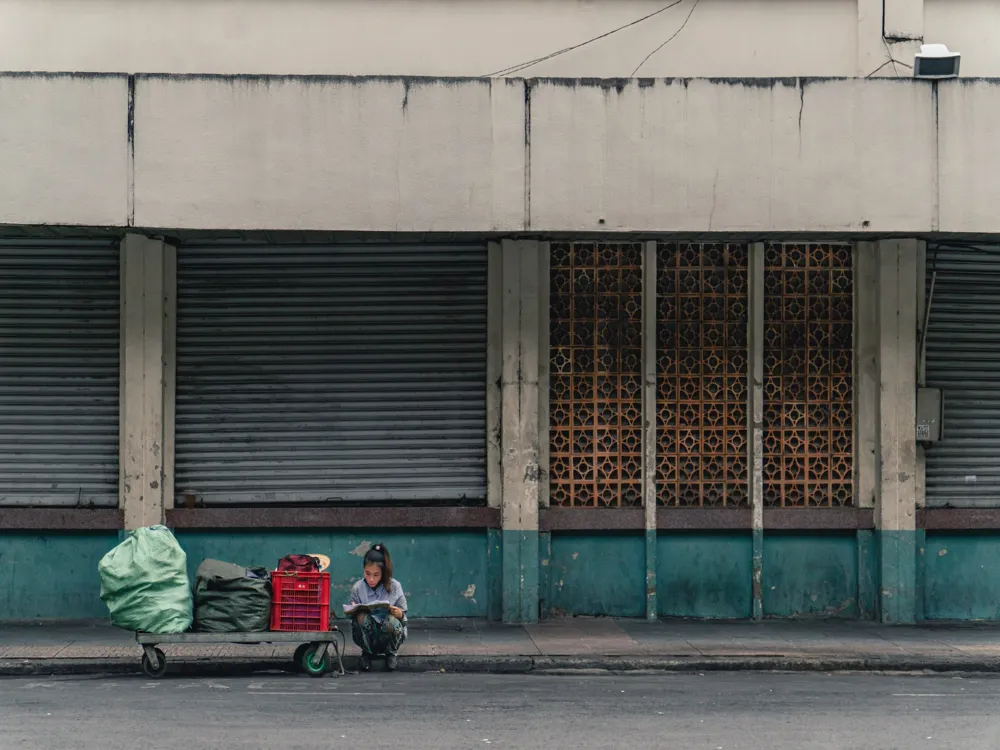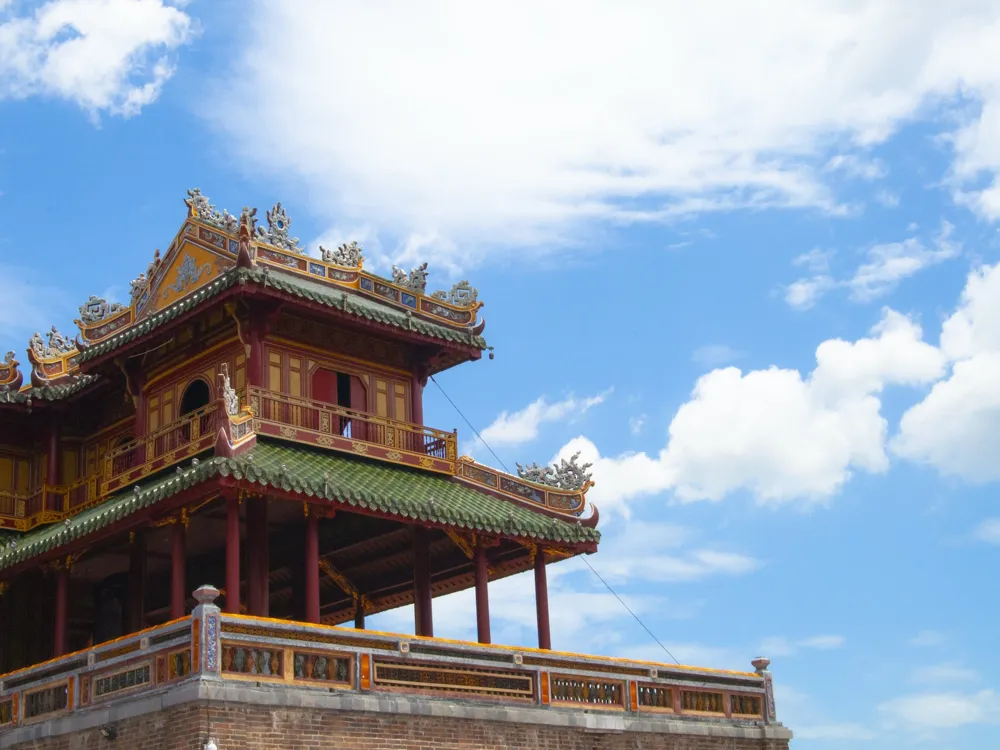The Ben Dinh Tunnels, a segment of the larger Cu Chi tunnel network, are an iconic symbol of the resourcefulness and resilience of the Vietnamese during the Vietnam War. Located near Ho Chi Minh City, these tunnels offer a vivid glimpse into the underground life of Vietnamese soldiers during one of the most tumultuous periods in the country's history. This subterranean complex not only served as a hideout but was also a strategic base for the Viet Cong. Spanning an impressive length, the Ben Dinh Tunnels were part of an elaborate 250 km network that connected various points, including living quarters, storage facilities, weapon factories, field hospitals, and command centers. Constructed in several stages, starting from the late 1940s through the 1960s, these tunnels played a crucial role in numerous military campaigns, including the Tet Offensive. Visitors today can explore a portion of this labyrinthine network, which has been preserved and widened for tourism purposes. The tunnels present an astonishing example of guerrilla warfare tactics and ingenuity. Their construction demonstrates exceptional engineering skills and an in-depth understanding of the local terrain and geology. Despite the hardships of war, these tunnels were a center of life, showcasing the indomitable spirit and determination of the Vietnamese people. The architecture of the Ben Dinh Tunnels is a testament to the ingenuity and resourcefulness of the Viet Cong during the Vietnam War. The tunnel system was designed to fulfill multiple functions - as a hiding spot, a method of transportation, a storage facility, and even a living space. The tunnels were dug by hand, primarily using simple tools like hoes and shovels, and the soil removed was dispersed in rivers or used to camouflage the tunnel entrances. The tunnels were constructed on three different levels, with the topmost being just beneath the surface and the deepest level reaching up to 10 meters underground. Each level was designed with specific purposes in mind, and they were connected by narrow, winding passageways that were just large enough for a person to crawl through. The first level, lying about three meters below the surface, was where the Viet Cong spent most of their time. It housed living quarters, kitchens with smoke dispersion systems to avoid detection, weapon storage areas, and even makeshift hospitals. The second level, situated around six meters deep, was primarily used for meetings and as a hideout during bombings. The deepest level was used as an escape route and a link to the Saigon River, providing a water source and a means of evacuation. Remarkably, the tunnels were equipped with booby traps and hidden entrances to protect against enemy infiltration. Ventilation shafts were ingeniously disguised using natural materials, and the tunnels themselves were built to withstand bomb blasts and chemical attacks. Before visiting the Ben Dinh Tunnels, it's advisable to wear comfortable and appropriate clothing as the tunnels can be narrow and humid. Lightweight, long-sleeved clothing is recommended to protect against scratches and insects. Also, wearing sturdy shoes is essential for navigating the uneven terrain. Visitors should bring water and perhaps a small snack, but be mindful of littering. While exploring the tunnels, it's important to stay with your guide and group. The tunnels can be confusing, and it's easy to get lost. Pay close attention to the instructions given by the guide, especially regarding safety. Be prepared for tight spaces - the tunnels are not for the claustrophobic. If you feel uncomfortable, most tunnel complexes have exit points at regular intervals. Visitors with health issues, particularly those related to the heart, lungs, or claustrophobia, should exercise caution. The air inside the tunnels can be humid and thin. If you feel uneasy at any point, inform your guide immediately. It's also advisable to carry a small first-aid kit for minor scratches or insect bites. The Ben Dinh Tunnels are accessible from Ho Chi Minh City and can be reached via various modes of transportation. The most convenient way is by car or motorbike, and the journey takes approximately 1.5 hours from the city center. Visitors can also opt for public buses, which are economical but might take longer. Many tourists prefer to book a guided tour, which often includes round-trip transportation from Ho Chi Minh City, along with a knowledgeable guide to enhance the experience. Read MoreOverview of Ben Dinh Tunnels in Ho Chi Minh City
Architecture of Ben Dinh Tunnels
Tips When Visiting Ben Dinh Tunnels
Preparation Before the Visit
During the Visit
Health and Safety Considerations
How to Reach Ben Dinh Tunnels
Ben Dinh Tunnels
Ho Chi Minh City
₹ 17,501 onwards
View ho-chi-minh-city Packages
Weather :
Tags : Cave
Time Required : 2 - 3 hours (inclusive of Cu Chi Tunnels)
Planning a Trip? Ask Your Question
Ho-chi-minh-city Travel Packages
View All Packages For Ho-chi-minh-city
Top Hotel Collections for Ho-chi-minh-city

Private Pool

Luxury Hotels

5-Star Hotels

Pet Friendly
Top Hotels Near Ho-chi-minh-city
Other Top Ranking Places In Ho-chi-minh-city
View All Places To Visit In ho-chi-minh-city
View ho-chi-minh-city Packages
Weather :
Tags : Cave
Time Required : 2 - 3 hours (inclusive of Cu Chi Tunnels)
Planning a Trip? Ask Your Question
Ho-chi-minh-city Travel Packages
View All Packages For Ho-chi-minh-city
Top Hotel Collections for Ho-chi-minh-city

Private Pool

Luxury Hotels

5-Star Hotels

Pet Friendly






















